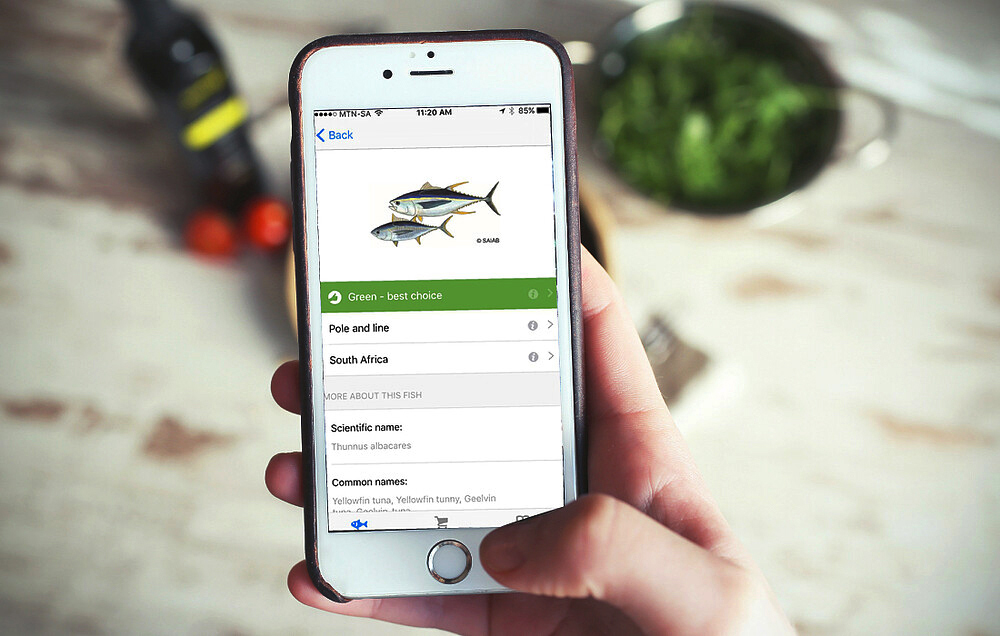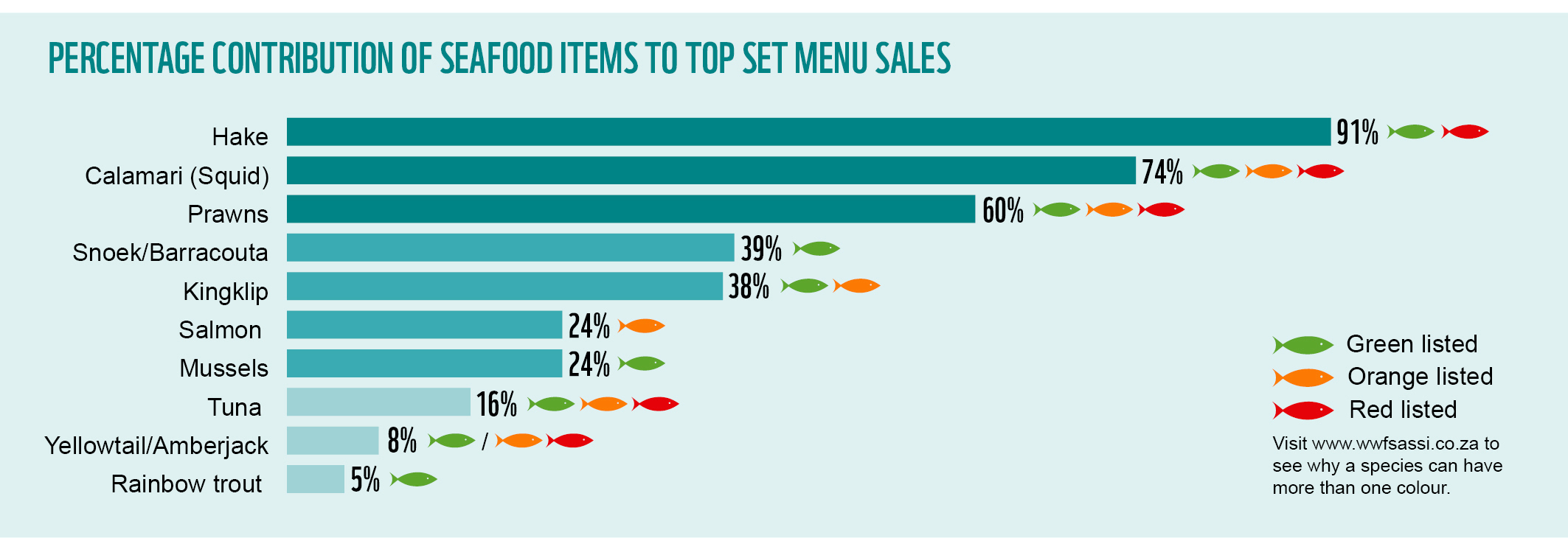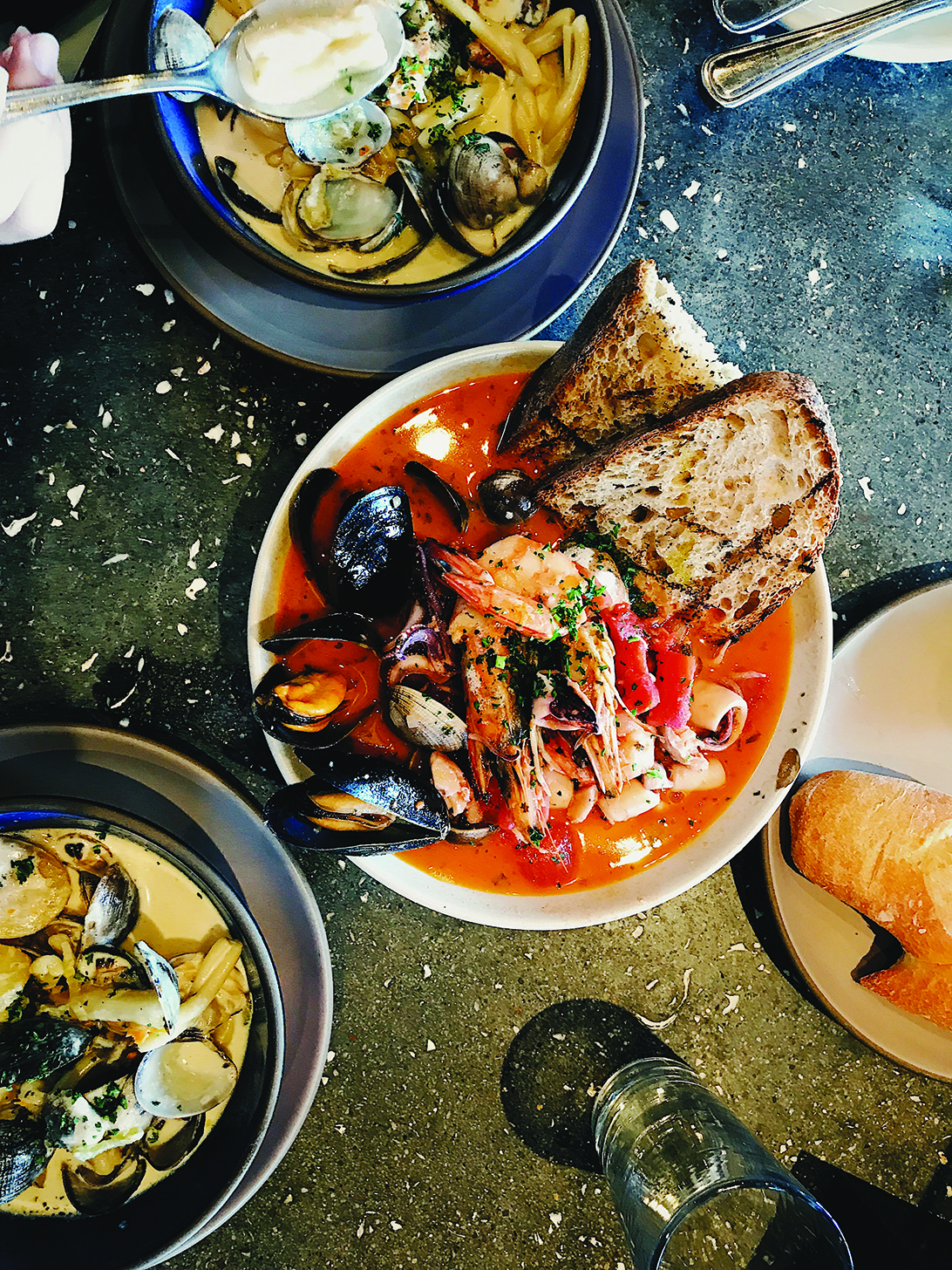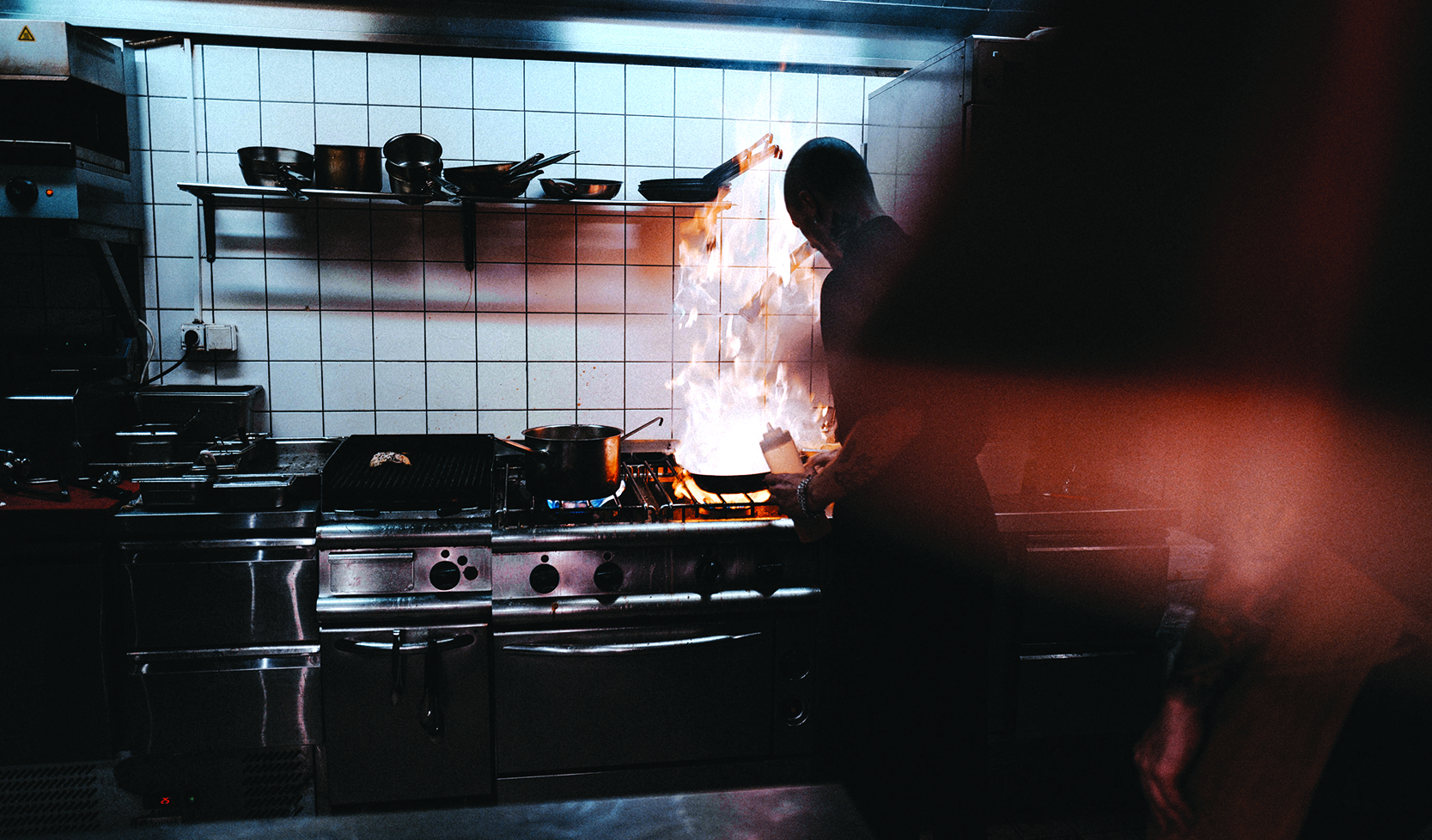‘Your biggest superpowers are your voice and your wallet. So ask the right questions, and then make a decision using your wallet,” said marine scientist Pavitray Pillay, who leads the WWF Southern Africa Sustainable Seafood Initiative (WWF-Sassi) and is a co-author of the WWF SA’s latest “On the Menu” report.
The report highlights that many restaurants in SA are still selling species that are red- or orange-listed by WWF-Sassi, especially on their seasonal menus, and makes the point that diners are heavily reliant on restaurants to be honest about where their seafood comes from and the sustainability status of the seafood on their menus.
But as Pillay emphasised, if diners start choosing not to eat red-listed species or start considering sustainable consumption, it would put pressure on what restaurants stock.
How do you make sure the seafood on your plate is sustainable?
Get the app
 The WWF-SASSI mobile app can be used to identify and choose sustainable seafood while cooking, dining out or shopping. (Photo: WWF South Africa / Wikipedia)
The WWF-SASSI mobile app can be used to identify and choose sustainable seafood while cooking, dining out or shopping. (Photo: WWF South Africa / Wikipedia)
WFF-Sassi created a free app that categorises fish species you’d find on your menu as green (best choice), orange (think twice) and red (don’t buy). Click here to download the app.
WWF-Sassi uses Marine Common Assessment Methodology (MCAM), which is internationally recognised, to consider several factors to determine the sustainability of a species and to rank them.
It looks at:
- The status of the population of that species or current stock status;
- The impact the fishing method has on the environment and ecosystem; and
- The management and regulations (for example, is the fishery compliant or does it give its data to the Department of Forestry, Fisheries and the Environment?)
So when dining at a restaurant you can consult the app to see if the seafood item is considered a sustainable choice (green).
Do you ever think about where the food on your plate comes from?
When you go out to eat, you can check if the seafood on your plate is sustainably sourced via the @WWFSASSI app ?https://t.co/kaPZazCgkS
This is me trying it out, for an article I’m writing for @dailymaverick pic.twitter.com/wXQmHHNgJ2
— Julia Evans (@Julia_J_Evans) February 7, 2024
Three questions for the restaurant manager or chef
What species is it?
Ask for the exact name, check the app to see if it’s on the ‘no-sale list’, or if it’s a species with a depleted population on the red list – you don’t want to buy that.
Where does it come from?
In South Africa, 50% of everything caught is exported, because the rand-dollar exchange means the fishing industry gets a better price, and our export market does well because we’ve got better-quality fish in our oceans.
However, 50% of the fish South Africans consume is imported from places such as Argentina, Peru, Patagonia, Russia and Morocco. But this doesn’t mean it’s not sustainable.
“Even though it is travelling further, it can still be a sustainable species,” Pillay said, adding that the inverse is also true – just because the squid is caught locally, it might not be sustainable because it doesn’t meet the other criteria.
“The important thing to understand is that local is great, but sometimes local is not sustainable, because the species has either been completely depleted, is a conservation concern or the fishing method has major environmental impacts,” Pillay said.
How was it caught or farmed?
This is a big one. For example, Cape Hope Squid – which is mostly green-listed – is green if it was caught using the jigging fishing method. But it’s orange if it was caught via inshore or offshore demersal trawl.
Pillay explained that as a consumer, you only need one of these answers to find if the menu item is sustainable, the app should help you with the other two questions; if not ask the chef/restaurant.
Fish to look out for
Based on seafood surveys from more than 200 restaurants across the Eastern Cape, Gauteng, KwaZulu-Natal and the Western Cape by an independent organisation contracted by WWF in 2019 and 2021, it was found that the top three set menu items in South Africa are hake, calamari (squid) and prawns.
 The percentage contribution of seafood items to total seafood sales for set menus in the surveyed restaurants. (Source: WWF-SASSI)
The percentage contribution of seafood items to total seafood sales for set menus in the surveyed restaurants. (Source: WWF-SASSI)
Seafood to check for sustainability
Prawns
Prawns are the third most popular set menu item in SA. The problem is, that out of the eight species sold on the SA market, very few are sustainable, one being the giant tiger prawn.
But then, this species is only listed as green if it was caught in ponds (extensive production with zero input) and imported from Vietnam. If it was imported from India with the same catch method, it’s classified as orange.
The report flags pink prawns as a concern, being a red-listed species and the top-selling prawns on set menus.
Pink prawn is a species imported from Mozambique and is caught in deep water by trawl nets. The report warns that this catch method “not only results in high levels of bycatch but also affects other endangered, threatened and protected species”.
Pillay explained that most prawns are not sustainable because their catch methods are extremely destructive.
 In South African restaurants, prawns feature as the third most popular item on set menus, but most prawn species are considered ‘fully exploited’ with fishing pressures above sustainable levels according to WWF-SASSI. (Photo: Cloris Ying / Unsplash)
In South African restaurants, prawns feature as the third most popular item on set menus, but most prawn species are considered ‘fully exploited’ with fishing pressures above sustainable levels according to WWF-SASSI. (Photo: Cloris Ying / Unsplash)
When catching prawns in the wild (not farmed), trawling methods are often used, whereby trawls will dredge through the mud, not only destroying the ecosystem, but also producing a high amount of bycatch (accidental catch that most often doesn’t survive).
When it comes to farming, practices can also be unsustainable, depending on the farming method.
The prawns we get in SA are extensively farmed in Vietnam, China and Thailand, where fish farms are sometimes built in mangroves.
This is a problem because mangroves provide pivotal ecosystem services – they perform carbon sequestration and act as an interface between freshwater and ocean water.
Pillay explained that some fish farms have poor water management systems, use high volumes of pesticides and antibiotics to treat diseases and parasites or use high volumes of wild-caught fish in their feed.
Calamari
Calamari (squid), the second most popular seafood sold at SA restaurants, is mostly classified as green – good to eat – by WWF- Sassi
However, calamari from Patagonia is orange-listed.
Yellowtail
Here there are labelling issues – SA-caught yellowtail is called yellowtail and is classified as green.
However, Pillay notes that there is a Japanese and Chinese yellowtail called yellowtail amberjack, which is red. From the research, we can see that some restaurants will buy yellowtail amberjack and label it as yellowtail.
Red-listed species on the seasonal menu
“The chalkboard [seasonal] menu was the one that I was quite horrified at,” Pillay said, explaining a lot of red-listed species (illegal to catch, buy and sell apart from for recreational use) were found on seasonal menus.
Certain red-listed species – classified by the DFFE – receive special protection because they belong to a collapsed population or are of extreme conservation concern. Other red-list species are either a major conservation concern and are classified red by WWF-Sassi.
Examples include West Coast Rock Lobster, Miss Lucy (red stumpnose) and Galjoen – South Africa’s national fish.
But while West Coast Rock Lobster is severely under threat, Pillay emphasised that most people don’t realise that you can eat most East Coast Rock Lobster.
That underpins the philosophy of Sassi and this report – Pillay said the report is not stopping anyone from eating fish, but encouraging them to make an informed choice to ensure sustainable consumption.
Why you should care what’s on your plate
“What’s on your plate, in terms of seafood, has a massive environmental footprint in terms of your wellbeing,” Pillay said.
“There’s enough evidence to show that if we don’t look after the oceans, and species collapse, which causes ecosystems to collapse, which changes how the oceans operate – it will have implications for us on land.”
The ocean provides many services for human beings. Along with being a rich resource of food, medicines and pharmaceuticals and providing about 50% of the oxygen that we breathe, it also acts as a buffer against climate change.
The ocean absorbs 30% of global carbon dioxide emissions through carbon sequestration and distributes and absorbs some of the heat caused by anthropogenic global heating.
“What that means is the ocean acts as a buffer for global warming. So as the planet gets hotter, the ocean soaks up a lot of that heat,” said Professor Mandy Lombard, the South African research chair in Marine Spatial Planning at Nelson Mandela University, explaining that water has a very high specific heat capacity, meaning it takes a lot of heat to warm it up and absorbs some of the heat caused by anthropogenic global warming.
“Now, unfortunately, we haven’t been very good at how we utilise those resources. We haven’t been very sustainable in what we eat and how much of it we eat,” Pillay said.
“If you overfish or you overexploit one species, food web collapse is inevitable, because marine systems, like land systems, are very well integrated and when things start collapsing, the knock-on effects are catastrophic, making the marine ecosystems less resilient,” she said.
But, as Pillay emphasised, consumers have power in this space. “One of the ways you can positively impact what is happening to our oceans is by making informed smart choices around your seafood”.
Lombaard agreed: “We don’t want to balance ourselves with the users of the ocean. We depend on the ocean, we depend on a healthy ecosystem.
“Now we need to manage how we interact with it.” DM




 In South African restaurants, prawns feature as the third most popular item on set menus, but most prawn species are considered ‘fully exploited’ with fishing pressures above sustainable levels according to WWF-SASSI. (Photo: Cloris Ying / Unsplash)
In South African restaurants, prawns feature as the third most popular item on set menus, but most prawn species are considered ‘fully exploited’ with fishing pressures above sustainable levels according to WWF-SASSI. (Photo: Cloris Ying / Unsplash) 